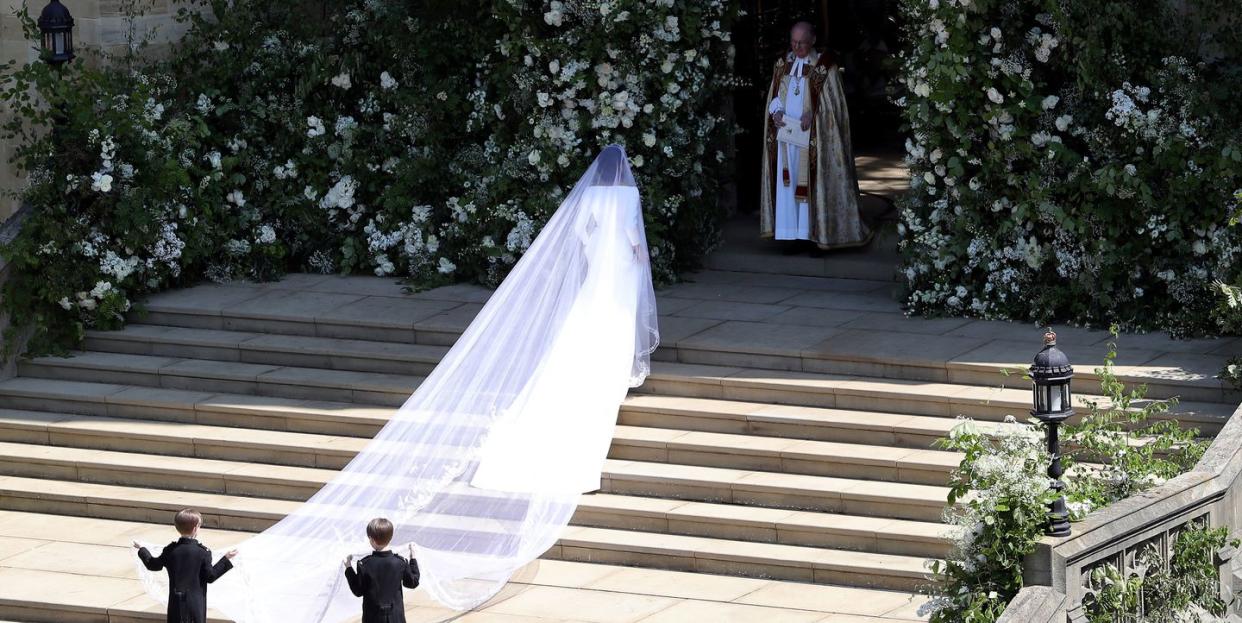The Wedding Traditions Couples Are Ditching In 2018

Anyone who has been to a succession of weddings over the last few years will agree that rarely are two identical. While some may stick to a more traditional format, more and more couples are choosing to do things their way, whether that be tweaking the vows and ditching the fruit cake, or ripping up the rule book entirely and eloping to Las Vegas.
A nationwide study by F.Hinds has found that the least important wedding traditions to couples today include wedding favours (just 9% say they're important), the bride's family footing the bill (10%) and the groom carrying the bride over the threshold (16%).
Interestingly, 42% of men consider it important to ask the prospective bride’s father for permission, compared to just 32% of women. But more women than men (46% to 37%) think that both the bride and groom should wear rings. Men and women consider it equally important for the bride to take the groom’s surname, although this number is only 36%.
[asset removed due to syndication rights]
Speeches are no longer the preserve of one gender, with 15% of brides choosing to give a speech at their wedding. Some brides, 24% of them, have opted to ditch the white dress, and for the groom, it appears the tricky task of having to choose just one best man has gone somewhat out the window, with one in four in the 25-34 age group simply selecting two (or more).
According to the study, the most important wedding traditions include a father walking the bride down the aisle and having a best man and bridesmaids, but still only just over half of respondents deemed these to be necessary - 59% and 46% respectively. While 60% of couples want to get married in a church, more than half do not consider themselves to be religious.
At the most recent royal wedding the bride walked herself down the aisle. Meghan also reportedly made a speech at the reception. So if the oldest institution in the UK can bend the rules slightly, so can you.
('You Might Also Like',)


